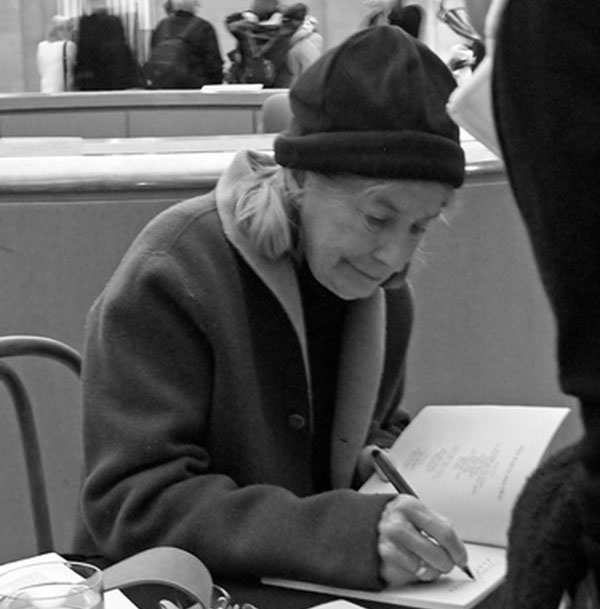I didn’t know Mary Oliver as well as I would have liked, though our poetry paths crossed a few times. We were introduced more than once, but it wasn’t until one evening in October 2012 that we were brought into close proximity. We were asked to read together at an immense performing arts center in Bethesda, Maryland. I was excited at the prospect of our two readerships convening in one place, but drama of a different kind was on the horizon. Hurricane Sandy was bearing down on coastal Maryland and due to strike later that night.
The storm did not deter our readers, who showed up regardless. Our reading went well, each of us showing a natural respect for the other, and the poems themselves, though different in tone and intent, at moments seemed to speak to each other along parallel lines. The audience was generous and quick with applause.
But what I remember best was the book signing that followed. It took place in the theater’s lobby. Mary and I were seated at adjoining tables, in front of which two long lines formed. We uncapped our pens, and the signing game began.
Sitting side by side as we were, I couldn’t help noticing how emotional many of Mary’s readers became in her presence. They gushed about how much her poems meant to them, how her poems had comforted them in dire times, how they had been saved by her work. Some of them, when it came their turn, burst into tears—as if the sight of the poet incarnate was too much to bear. Others farther back in the line dabbed their eyes in anticipation. Meanwhile, what I was getting from my readers was more like, “Could you sign this to Bob? It’s his birthday.”
Throughout these outpourings, Mary Oliver kept her cool. She exuded a measure of sympathetic understanding to each individual. I wondered, though, whether she saw that all these emotions were based on a misunderstanding. Was this the audience she had in mind? Were these the reactions she intended to provoke? In an interview with her friend Coleman Barks, she said that she had not meant to offer comfort through her poetry. On the contrary, she wanted her poems to be controversial, “incendiary.” Her poems confront the fears and terrors of being alive.
And yet, though Mary Oliver may have felt herself to be alone on those exploratory morning walks, she had been accompanied by thousands, every step of the way. She managed—to paraphrase Wordsworth—to create the taste by which she was enjoyed. She had not merely fans but true followers.
Billy Collins is the author of twelve collections of poetry. He was poet laureate of the United States from 2001 to 2003 and New York state poet from 2004 to 2006.
from The Paris Review http://bit.ly/2sIox1r

Comments
Post a Comment